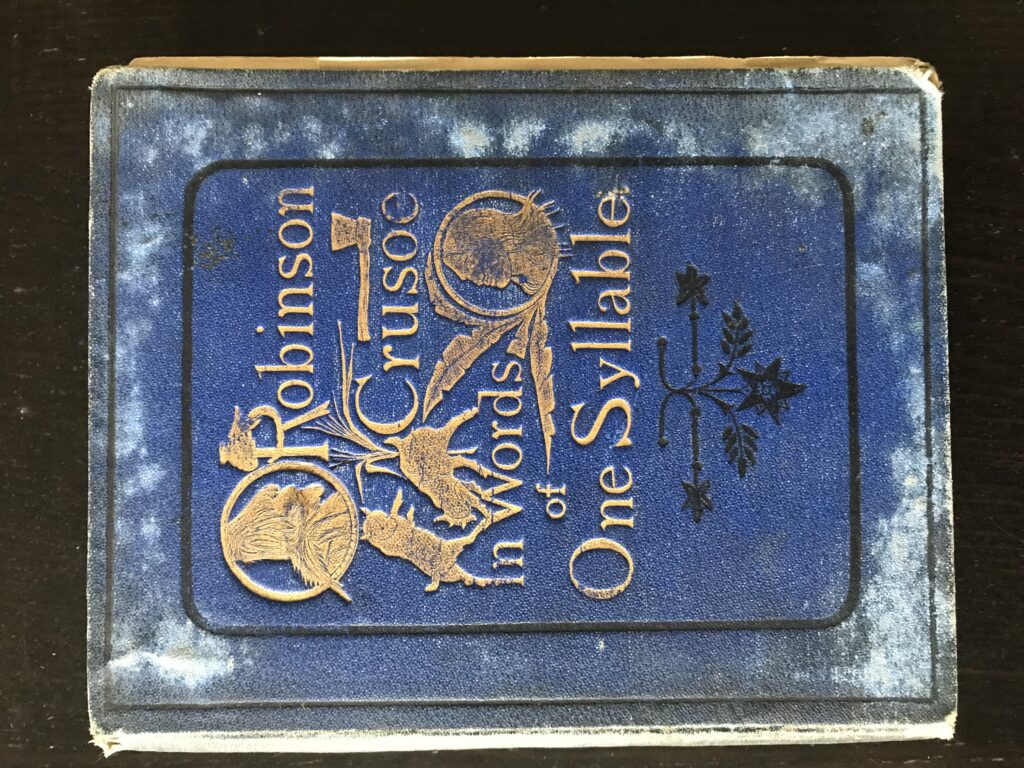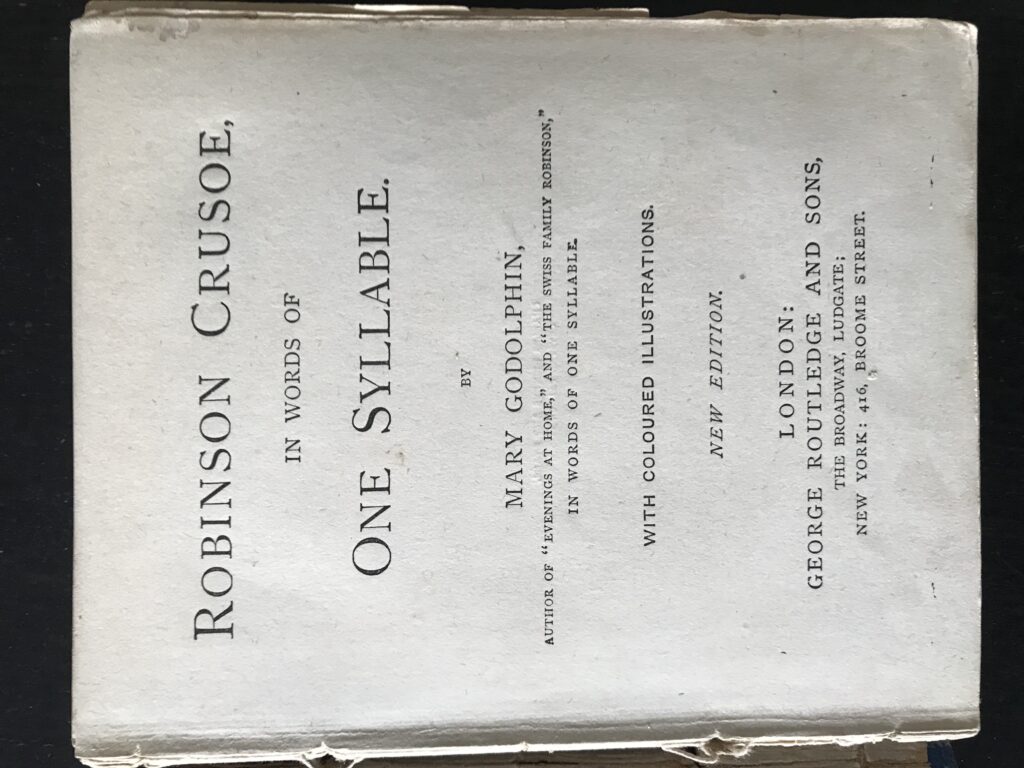Endnu et køb i kategorien “for spøjs til at lade ligge”: en udgave af Robinson Crusoe skrevet med lutter enstavelsesord. Udgivet 1. januar 1900 af en Mary Godolphin (skønt navn), der også har udsat et par andre bøger for samme behandling. Hun skriver i forordet:
The production of a book which is adapted to the use of the youngest readers needs but few words of excuse or apology. The nature of the work seems to be sufficiently explained by the title itself, and the author’s task has been chiefly to reduce the ordinary language into words of one syllable. But although, as far as the subject matter is concerned, the book can lay no claims to originality, it is believed that the idea and scope of its construction are entirely novel, for the One Syllable literature of the present day furnishes little more than a few short, unconnected sentences, and those chiefly in spelling books.
The deep interest which De Foe’s story has never failed to arouse in the minds of the young, induces the author to hope that it may be acceptable in its present form.
It should be stated that the exceptions to the rule of using words of one syllable exclusively have been made in the case of the proper names of the boy Xury and of the man Friday.
Det sidste skuffer mig lidt. Det ville da have været oplagt at kalde omdøbe Robinsons følgesvend til “Fifth Day of the Week” (eller faktisk “Sixth Day of the Week”; Robinson hører til dem der tæller søndag som første dag). Og bogen kunne så passende have været betitlet The Man Who Was Stuck on an Isle for Quite a Long Time.
Det er i øvrigt ikke første gang jeg er stødt på enstavelsesords-disciplinen. Douglas Hofstadters sprudlende murstensværk Le Ton Beau de Marot (som jeg må skrive om på et tidspunkt) omhandler skriveri under alle tænkelige restriktioner, og således også denne. Hofstadter påtager sig endda den temmelig ærefrygtindgydende opgave at redegøre for Einsteins relativitetsteori på den måde – jeg husker noget i retning af “… and four score or so years on from that time all had been found to be true by folks whose job it is to stare at the night sky’s lights”. Godolphin benytter sig af samme trick mht tidsangivelse; hendes bog slutter således:
And now I must bring this tale of my life to a close; while at the age of three score years and twelve, I feel that the day is at hand when I must pray to go forth on that sea of peace and love, which has no waves or shores but those of bliss which knows no end.


